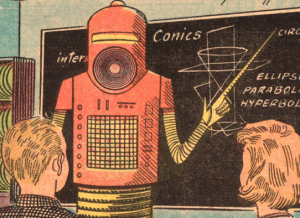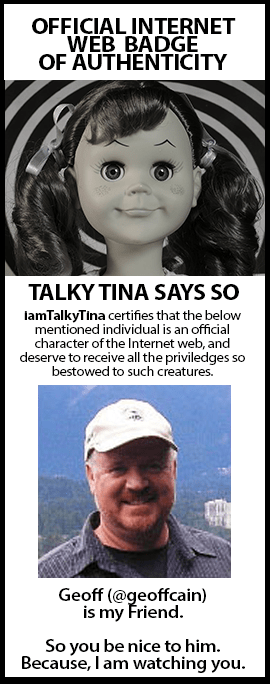 By the click-baity title “end of education,” I don’t mean the inevitable intellectual dystopian smoking hellscape of education that is to come, but the purpose of education: to what end are we doing what we do and by what means do we wish to do it. What is the purpose of education? Even here in a technical college, our goal shouldn’t be to just get someone through a test, but to teach them how to learn. We are not just teaching someone how to repair a car, but how to analyze problems. The uncritical adoption of the latest technology (or idea, pedagogy, philosophy, etc.) does not do that.
By the click-baity title “end of education,” I don’t mean the inevitable intellectual dystopian smoking hellscape of education that is to come, but the purpose of education: to what end are we doing what we do and by what means do we wish to do it. What is the purpose of education? Even here in a technical college, our goal shouldn’t be to just get someone through a test, but to teach them how to learn. We are not just teaching someone how to repair a car, but how to analyze problems. The uncritical adoption of the latest technology (or idea, pedagogy, philosophy, etc.) does not do that.
“He [Plato] defined education as we would: as training of personality to absorb the greatest possible scope and intensity of meaning and value from experience.” – Kenneth Rexroth
I think that the question we need to ask is why are we in education in the first place? Why are we teaching? If it is purely transactional – that you are here to provide student X with a certification for a job. Then, yes, by all means, lets get rid of teachers and replace them with AI or maybe a “smart” vending machine. But if it is more than that, then we should be taking the time to look closely at the tools we choose to use.
The idea that AI is going to make it easier to write a paper is like saying that a Xerox machine makes it easier to draw. The purpose of drawing is not just to easily reproduce what we see, but to use our minds and body, our whole person to bear on ideas in a tangible way and connecting to the world around us. A camera can reproduce things more accurately, but even modern architectural drawings try to communicate the spirit of a place or the concept behind the building.
Learning how to think, how to solve problems creatively does not need to be off-loaded on to technology as something difficult. Thinking and creating is difficult – its called “cognitive dissonance” and the resolution of that dissonance is where learning takes place. This is not just the acquisition of information or the production of a paper: the knowing happens in the work.
To bowdlerize McLuhan, the tools we choose to shape the world also shape us, therefore it is critical that we understand what tool we are actually choosing. Proponents of tools like ChatGPT are already projecting human thought processes onto a Large Language Model that does not actually think, create, or decide. Educators need to account for the ethical costs of the tools we choose to use. There are problems with the lack of transparency with companies like OpenAI where we have no way to verify the data that the company uses to “train” its ChatGPT because that information is proprietary. But I have touched on these issues elsewhere.
“The function of education, therefore, is to teach one to think intensively and to think critically. But education which stops with efficiency may prove the greatest menace to society. The most dangerous criminal may be the man gifted with reason, but with no morals.” – Martin Luther King, Jr.
I don’t object to a single thing about AI itself – it is just another tool and tools have their uses. It is being used to make huge improvements in medical treatments, assist during natural disasters and help us respond to climate change, just to name some innovations. What is objectionable is that corporations like OpenAI are treating education as just another marketplace and students as just another commodity. They also promote the view that education and assessment is just the production of just another product. And institutions are going along with it all because they think they will miss out on “the latest thing.” If we don’t do this, then someone else will. Alternately, I am hoping that we can create some spaces for critical thinking and analysis of AI and make decisions about how AI might fit into education based on something besides marketing.




